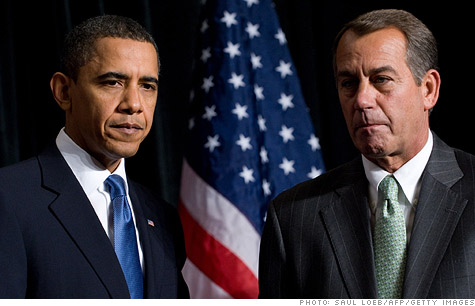Is this July 1929, with financial Armageddon lurking around the corner? Or is this “fiscal cliff,” when tax hikes and spending cuts converge with potentially catastrophic economic results, merely a speed bump and warning that can be carefully negotiated over the coming months rather than on a crash basis? Or are we missing something much larger?
The answer to this last question is hidden in plain sight. Possibly more threatening than this fiscal cliff is a looming strategic cliff. An appropriate metaphor may be July 1914, when world war was inevitable — albeit today in far slower motion and with far different consequences. Consider why.
- Tectonic geostrategic and economic realignments are underway. They may not be ubiquitous, but they are extensive. In Europe, the financial crises threaten the political underpinnings of a Europe whole, free and economically viable. Powerful centrifugal political forces unleashed by the Euro crisis could divide and even fragment a once united Europe with tragic consequences for the Western alliance.
- In the Arab and Islamic worlds, concurrent, often conflicting and unfinished revolutions have shaken the old orders without establishing replacement regimes. The “Arab Spring,” now a winter of discontent, was catalyzed by unfilled ambitions and expectations of the many, exacerbated and made visible by a globalized and electronically connected world.
The centuries-old conflict between Sunnis and Shias has been reignited in Syria and the Arabian Gulf states and catalyzed by Iran and its newfound friend, Iraq. And radical Wahabism and Salafism, supercharged by al-Qaida, are ticking time bombs in the midst of already highly explosive and volatile ingredients.
Perhaps the beginnings of an Islamic reformation that could metastasize into chain reactions with the impact that was seen in Europe in 1789 or 1848 are present. Perhaps any outcomes will be further affected by Iran’s nuclear ambitions and whether Israel, alone or with help, concludes that the Iranian-Islamic threat is existential and launches military strikes.
- As NATO withdraws from Afghanistan and that country lurches forward without critically needed outside support, the consequences for South Asia are far from reassuring.
- The Pacific is not a sea of harmony. New and untested leaders in China will assume power. Territorial rivalries in the South and East China seas remain unsettled. Many worry that as China’s military power expands and North Korea persists as an unpredictable danger, prospects for instability and conflict build.
- Meanwhile, who knows what monsters may emerge from the cyber world.
Against this kaleidoscope of colliding and competing fault lines, what is the American geopolitical strategy for dealing with the dangers and even opportunities of this unsettled world? The United States, of course, has national security, diplomatic and military strategies. NATO has its strategic concept. Yet, in the harsher light of a looming strategic cliff, while well-meaning, these documents a strategy do not make.
The Obama administration’s “strategic pivot” to Asia is a further complication as it underestimates, if not ignores, the impact of the shifting ground in Europe and the Arab and Islamic worlds.
It is self-evident that for any strategy to succeed, its aims and objectives must be sound, relevant and achievable. When these aims are flawed, strategy will assuredly fail.
For example, in the effort to contain religious extremism, America’s aim is to kill or capture the enemy, dramatized by drone warfare, rather than to defeat the perverted ideas and ideologies motivating this radicalism. That will not work, as President George W. Bush learned in his disastrous attempt to alter the geostrategic landscape of the Middle East by imposing democracy on Iraq.
Will President Obama and his team recognize this strategic cliff in time and avoid it? Having won a second term, the adrenalin high can be a prescription for self-deception and delusion. President Dwight Eisenhower had a powerful remedy. He named it Project Solarium.
When Ike took office in early 1953, the world was probably as volatile then as it is today. Eisenhower had a hot war in Korea and a Cold War that could go hot, with the succession in Soviet leadership following Joseph Stalin’s death. He realized he needed a new strategy to deal with these challenges and dangers. Eisenhower assembled a team of experts in the White House solarium to create an appropriate strategy for him and the nation. That this group did, and containment and deterrence of the Soviet Union became a bipartisan policy that ultimately won the Cold War.
President Obama should emulate Ike and convene a team to dissect, critique and reassess the current national security strategy. Resistance to conducting a candid review will be fierce because any self-criticism will create political opportunities for Republican counterattacks to weaken the president after his electoral victory. This requires presidential courage to challenge his own policies, something that we failed to do successfully during the Vietnam War and the lengthy incursions into Afghanistan and Iraq. Otherwise, prepare for a long, tragic and painful descent over this strategic cliff.
Harlan Ullman is senior advisor at the Atlantic Council, and chairman of the Killowen Group that advises leaders of government and business. This piece first appeared in Defense News.
Image: obama_boehner.jpg
